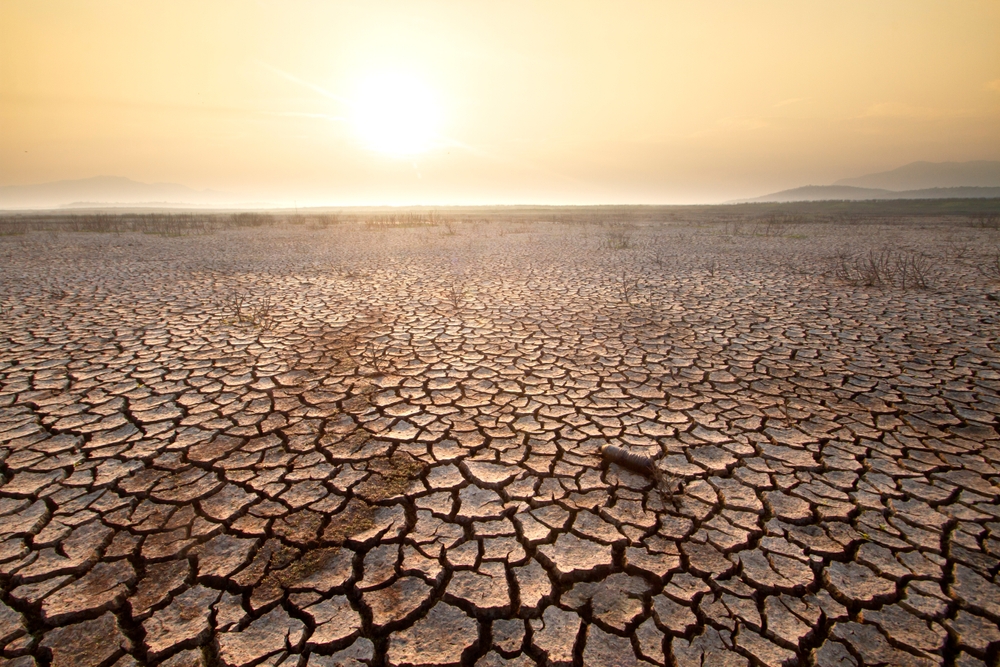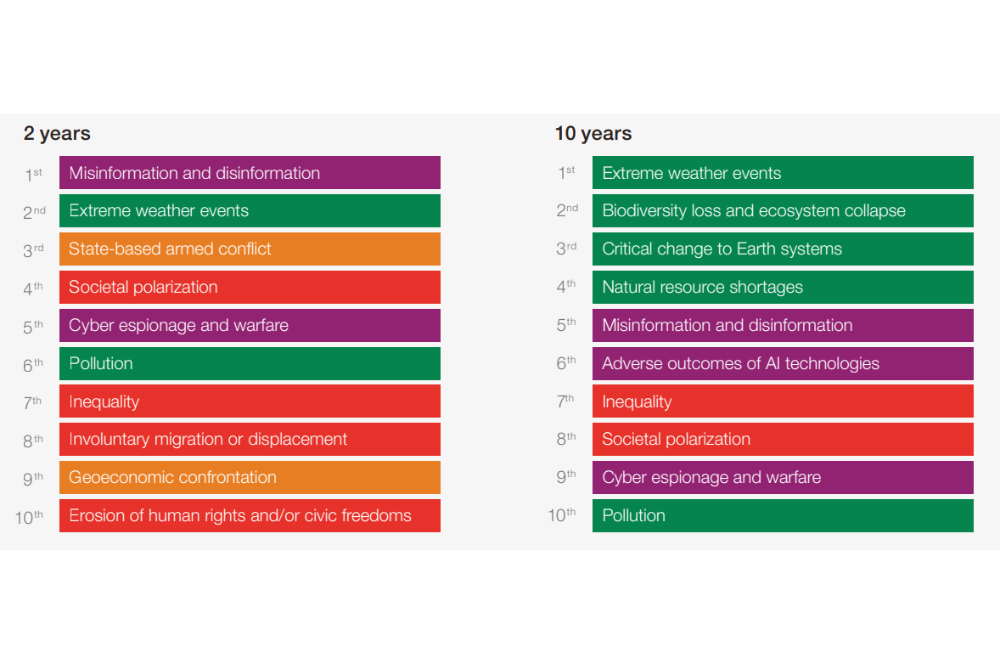

Drawing on the views of over 900 global risks experts, policy-makers and industry leaders, its Global Risks Report 2025 also lists natural resource shortages and pollution among the top 10 threats for the decade ahead.
Misinformation and disinformation top the ranking for the next two years, with the authors warning they could fuel instability and undermine trust in governance, “complicating the urgent need for cooperation to address shared crises”.
Extreme weather and pollution are also listed among the short-term risks, with the latter reflecting a growing recognition of the serious health and ecosystem impacts of a wide range of pollutants across air, water and land.
While all 33 risks in the ranking are expected to worsen in severity from the two-year to the 10-year time horizon, environmental threats present the most significant deterioration.
"From conflicts to climate change, we are facing interconnected crises that demand coordinated, collective action," said WEF’s head of global risks initiative Mark Elsner. “Renewed efforts to rebuild trust and foster cooperation are urgently needed. The consequences of inaction could be felt for generations to come."
The top 10 short-term and long-term risks are shown below:

The report reveals an increasingly fractured global landscape, where escalating geopolitical, environmental, societal and technological challenges threaten stability and progress.
While economic risks have less immediate prominence in this year’s results, they remain a concern, interconnected with societal and geopolitical tensions.
Inequality and societal polarisation feature prominently in both short- and long-term risk rankings, while state-based armed conflict is identified as the most pressing immediate global threat for 2025.
The authors suggest that the decade ahead presents a pivotal moment for leaders to navigate complex, interconnected risks and address the limitations of existing governance structures.
To prevent a downward spiral of instability – and instead rebuild trust, enhance resilience, and secure a sustainable and inclusive future – they urge nations to prioritise dialogue, strengthen international ties, and foster conditions for renewed collaboration.
"Rising geopolitical tensions and a fracturing of trust are driving the global risk landscape," said WEF managing director Mirek Dušek. "In this complex and dynamic context, leaders have a choice: to find ways to foster collaboration and resilience, or face compounding vulnerabilities."
Image credit: Shutterstock
Graph credit: WEF